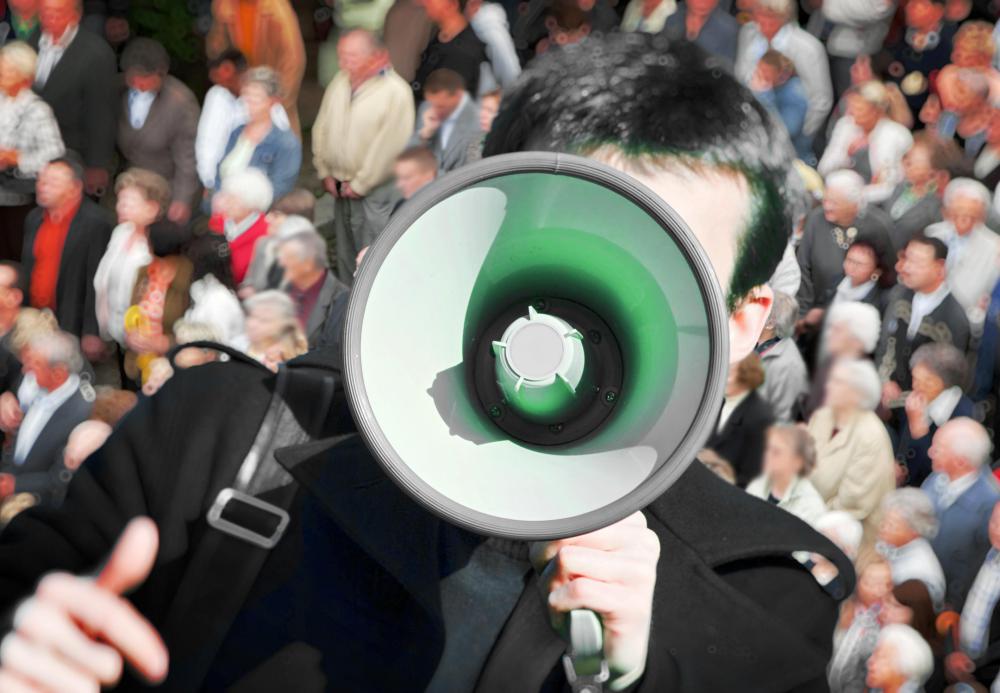At WiseGEEK, we're committed to delivering accurate, trustworthy information. Our expert-authored content is rigorously fact-checked and sourced from credible authorities. Discover how we uphold the highest standards in providing you with reliable knowledge.
What is the Freedom of Assembly?
Freedom of assembly is a human right that is protected in many regions of the world. Under freedom of assembly, people are entitled to gather peaceably with groups of other people to pursue mutual interests and goals. This concept is closely linked with the right to free association, a human right that pertains to joining associations and organizations.
Under international law, a number of documents outline and protect freedom of assembly. A broad swath of nations including Canada, Turkey, France, India, and the United States have also specifically identified freedom of assembly as a protected right. Hong Kong, which operates on a separate system of government from mainland China, guarantees its citizens freedom of assembly.

The right to assembly is used to argue that as long as people are not inciting violence or creating a clear and present danger, they have the right to gather in groups to exchange information and ideas. Often, this takes the form of protests, as seen in picket lines of companies by their workers and political protests where citizens gather to protest government activities. Citizens are entitled under freedom of assembly to petition their governments to address grievances, although their governments are not required to comply with these petitions.

Essentially, freedom of assembly protects the right to have public meetings. The government may monitor public meetings to gather information for intelligence agencies or in the interests of protecting public safety, but it cannot disperse or break up meetings. Under the law, permits may be required for public meetings as a matter of public safety. People usually pay small fees for the permits and the government is not allowed to reject permits in the grounds of an organization's beliefs. Thus, for example, the Klu Klux Klan is entitled to a permit every bit as much as the Jewish Anti-Defamation League.
Government agents can break up a public meeting if the meeting is not permitted and it poses a risk to public safety, or if the meeting is permitted, but poses a clear danger. For example, if attendees of a public meeting are inciting a lynching, law enforcement officers can step in to break up the gathering and prevent violence.
The closely associated freedom of association is a civil right that mandates that people are allowed to join any associations they wish, without interference. Conversely, people are also allowed to reject membership in organizations. This addresses situations like organizing trade unions, preventing employers from pressuring their staff into refusing to join the union. It also ensures that people are not forced to join associations they do not wish to join.
AS FEATURED ON:
AS FEATURED ON:












Discuss this Article
Post your comments